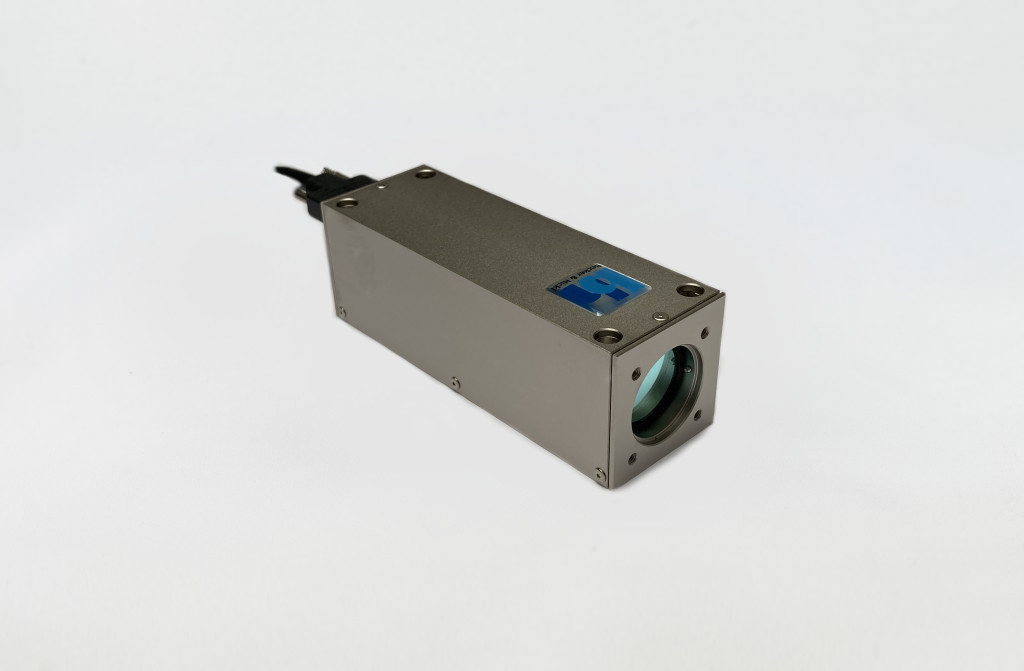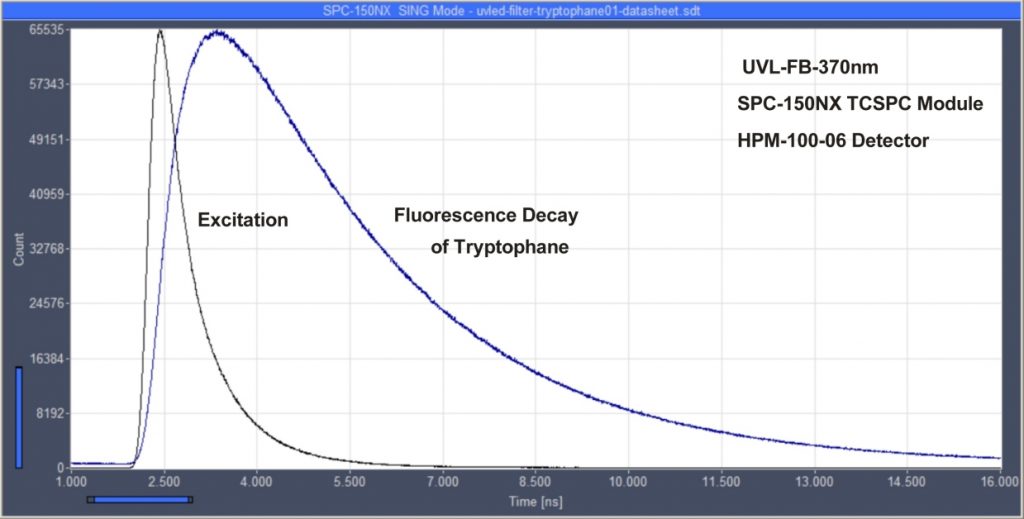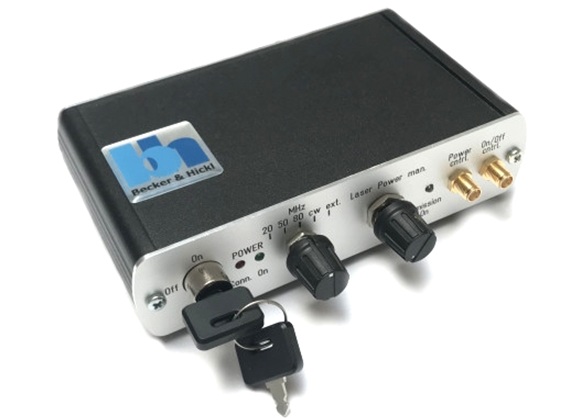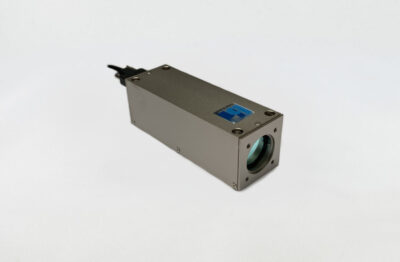
- Picosecond Pulsed LED
- Small Size OEM Module, 40 mm x 40 mm x 120 mm
- Pulse Width 500 ps to 800 ps
- Pulse Repetition Rate 20 MHz, 50 MHz, 80 MHz
- Wavelengths: 270 nm and 310 nm
- Free Beam Output
- Power Approx. 50 µW at 50 MHz
- Fast ON / OFF / Multiplexing Capability
- All Electronics Integrated
- Simple +12 V Power Supply
- Compatible with all bh TCSPC Devices
Description
The UVL series light sources are based on ultraviolet LEDs which are driven by high-speed picosecond pulse electronics. The devices provide pulsed light in a spectral range where diode lasers are not available. Pulse repetition rate is 20, 50, and 80 MHz, pulse width is in the range form 500 ps to 800 ps. Compared with lasers, the optical power is relatively modest. Another difference to lasers is that the emission does not come from a single spot but from a relatively large area. It therefore cannot be focused into a diffraction-limited spot or injected into optical fibres. Nevertheless, in combination with the high sensitivity of TCSPC the UVL-FB can be used for a wide range of fluorescence decay experiments in the ultraviolet spectral range. The figure below shows a fluorescence decay curve of Tryptophane, excited by a UVL-FB-270nm light source. The detector was a HPM-100-06 hybrid detector, the TCSPC module an SPC-150NX.

When the UVL-FB is integrated in complex fluorescence measurement systems it can be used as it is. All that is needed is a +12 V power supply and a voltage divider to set the power-control input voltage.

For laboratory application it is recommended that the UVL-FB is used with a LSB-C control box, which has controls for the repetition rate and output power.

Specifications
|
|
UVL-FB |
|
Optical |
|
|
Wavelength / nm |
270, 310 |
|
Repetition Rate / MHz |
20, 50, 80 |
|
Pulse Width (FWHM, at Medium Power, at Maximum Power) 2) |
typ. 580 ps, typ. 700 ps |
|
Optical Power |
Approximately 50 µW |
|
Power Control Range |
10 % to 100 % |
|
Optical Beam Dimensions |
see Figure in Datasheet |
|
Trigger Output, to TCSPC Modules |
|
|
Pulse Amplitude |
-1.5 V (Peak) into 50 Ω |
|
Pulse Width |
1 ns |
|
Output Impedance |
50 Ω |
|
Connector |
SMA |
|
Jitter between Trigger and Optical Pulse |
< 10 ps |
|
Synchronisation Input |
|
|
Input Amplitude |
+3.3 V to +5 V into 50 Ω |
|
Duty Cycle |
10 to 30 %; DC Equivalent must be < 2.5 V |
|
Input Frequency |
20 to 80 MHz |
|
Switch between Internal Clock and Sync Input |
Automatic, by Average Voltage at Trigger Connector |
|
Control Inputs |
|
|
Emission ON / OFF |
TTL / CMOS, low means OFF, Internal Pull-Up |
|
Response of Optical Output to Emission ON / OFF Signal |
< 1 µs |
|
External Power Control |
Analog Input, 0 to +10 V |
|
Response Time of Optical Output to Power Control |
< 4 µs for Power 10 to 100 % |
|
Frequency 80 MHz |
Active H, internal Pull-Down Resistor |
|
Frequency 50 MHz |
Active H, internal Pull-Up Resistor |
|
Frequency 20 MHz |
Active H, internal Pull-Down Resistor |
|
Device Runs at 50 MHz When Frequency Inputs Unconnected |
|
|
Power Supply |
|
|
Power Supply Voltage |
+9 V to +15 V |
|
Power Supply Current at 12 V |
300 mA to 400 mA |
|
Mechanical Data |
|
|
Dimensions (width x height x depth) |
(40 x 40 x 120) mm |
|
Mounting Thread |
four M3 Holes |
|
Heat Sink Requirements |
< 2 °C / W 1) |
|
Maximum Values |
|
|
Power Supply Voltage |
0 V to +15 V |
|
Voltage at 'Laser ON/OFF' and 'Frequency' Inputs |
-2 V to +7 V |
|
Voltage at 'Laser Power' Input |
-12 V to +12 V |
|
Ambient Temperature |
0 °C to +40 °C |
(1) OEM version without active cooling must be mounted on heat sink. Case temperature must remain below 40 °C.

